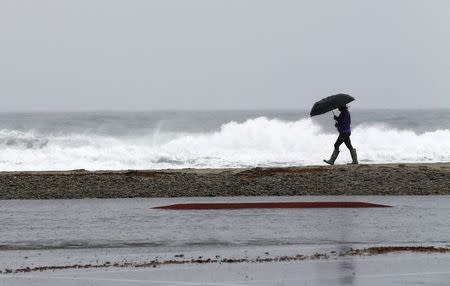Paris climate summit faces tougher job after modest Lima deal

By Alister Doyle and Valerie Volcovici LIMA (Reuters) - A Paris summit in 2015 will face a tougher task to agree a U.N. deal to slow climate change after the hopes of many that cooperation between Washington and Beijing would be a magic key to end global gridlock dissolved in chaotic preparatory talks in Lima. At best, Paris may be a chance to reform a sprawling system of annual U.N. talks - more than 11,000 delegates attended the two-week talks in a tent city in Lima - and find ways to boost long-term action to stem rising greenhouse gas emissions. After a frantic conclusion two days into overtime on Sunday, about 190 governments agreed only to some modest building blocks of a Paris accord despite high expectations for a positive outcome after the China and the United States, the world's top two emitters, last month agreed jointly to limit emissions. But the political momentum of the deal gave way to the familiar divisions and "red lines" that routinely bog down talks, especially on the question of how to differentiate the responsibilities of rich and poor countries. "The U.S.-China announcement hinted at a fundamental shift putting developed and developing countries on a more equal footing. It's no surprise that in Lima a lot of developing countries pushed back," said Elliot Diringer of the Center for Climate and Energy Solutions. The United Nations says it is already clear that promises for emissions curbs at a Paris summit in December 2015 will be too weak to get on track for a U.N. goal of limiting global warming to 2 degrees Celsius (3.6 F) above pre-industrial times. "We will have a lot of work to do," French Foreign Minister Laurent Fabius said of the task ahead for Paris. Still, 2015 holds out a hope of reform for the U.N. system to rein in greenhouse gases blamed for causing heat waves, floods, droughts and rising sea levels. Paris could mark a shift away from two decades of climate diplomacy toward a more technocratic system that would allow national pledges for action to limit warming to be compared and toughened in coming years. Yvo de Boer, a former U.N. climate chief, said one problem was that U.N. negotiators lacked authority. "If the leaders of the Group of 20 got together and said 'let's get this done' the whole thing would be over in 30 minutes," he told Reuters. De Boer, who heads the Global Green Growth Institute, which helps developing nations, noted that annual climate talks have ballooned since 1,000 delegates attended a first meeting in 1994. "Paris could be an opportunity to change that, if it identifies the cornerstones of the work that needs to be done. It could make it into a technical process and not a political process," he said. So far, however, the signs even of that are not good. Texts agreed in Lima will oblige governments to provide only vague plans for limiting greenhouse gas emissions - the cornerstone of a Paris deal - after China objected to a European Union drive for detailed accounts. The outcome of the Lima talks, which attracted delegates ranging from OPEC oil ministers to vegans dressed as chickens, means that a Paris deal is likely to be a mere patchwork of national offers for curbing emissions. Adding pressure, this year is set to be the warmest, or among the very hottest, on record, according to the U.N. weather agency. Some long-time U.N. climate talk observers said the weak outcome from Lima proves that the U.N. multilateral process is not the best for climate action. Businesses and cities are among those taking action. "While negotiators had difficulty in reaching agreement in Lima even on a modest set of outcomes, the U.N. is no longer the only show in town," said Nathaniel Keohane of the Environmental Defense Fund. (Reporting by Alister Doyle and Valerie Volcovici; Editing by Leslie Adler)

